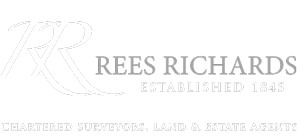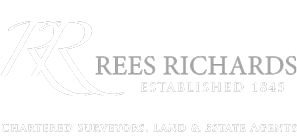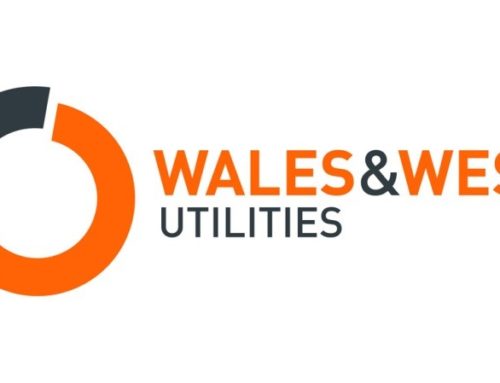Property Valuation Reports
The most common type of Property Valuation requirement is to provide an estimate of how much your property would achieve on the open market, however, there are other situations where a professional valuation is required – so we’ve put together a full list of the typical property valuations we encounter in our capacity as Chartered Surveyors.
Property Valuation for Sale
The most common type of property valuation report arises when you are thinking of selling your property. An estate agent or chartered surveyor will visit your home and give you Valuation for Sale or a market appraisal as its now commonly referred to.
This is an accurate price based on what similar, nearby properties have sold for and takes into account any other factors which could affect the value, such as location, size, position and condition.
The Valuer would also discuss how fast you want to sell your property – many agents would advise a lower price if a quick sale is required.
These valuation reports tend to be brief and not terribly in depth.
Online valuation
Thanks to the wonders of the internet, it is possible to get an approximate online valuation without picking up a telephone.
While these are fast, they are rarely accurate because they are usually calculated by a computer rather than a skilled valuer and will be based on your location, property type and current market prices rather than looking at your property and assessing it on its individual merits.
These are great for a ‘rough idea’ of what your home could fetch, but are rarely useful beyond that – unfortunately, there is no substitute for an experienced valuer.
Mortgage valuation
When you apply for a mortgage, the lender will want to estimate the value of the property you want to purchase before they agree to lend secured funds against the title.
This is required to ensure that should you default on your mortgage, and the lender needs to re-possess the property, they require the confidence in knowing that they are able to recover the mortgage debt by selling the property. A secured lending/mortgage valuation is primarily focused on the properties value.
A mortgage valuation report, usually involves a short survey on the property. The valuer will look for issues that may indicate a property risk for the lender, such as subsidence, but this is a very basic report which would not give a lot of detail.
This type of valuation is something your lender will usually instruct, although they will normally ask you to pay the fee as part of their loan application process.
Building Survey
A Building Survey is very different to a Valuation Report, but we are including it in this section to explain the difference.
When you are selling or buying property, most surveyors recommend obtaining a proper building survey from a professional surveyors, along with a RICS HomeBuyer’s report. Some lenders will offer this option as part of their valuation report for a higher fee. Either way, most estate agents would not buy a house themselves without having a full building survey conducted on the property – but it isn’t mandatory.
A Building Survey assesses the property and will do a detailed analysis of the structural state, taking into account any past or predicted problems to be aware of – preventing sellers from investing in a property which may need expensive structural repairs.
Insurance valuation
Whereas a lender will only be interested in whether the property is a sound financial investment, and therefore look at the ‘sale cost’, an insurance valuation looks at the cost of rebuilding your property in the event of a catastrophe. This is invariably a lot more than the asking price, although how much more will depend on the property.
Surveyors will look in detail at the physical features of the building, such as its size, the construction materials, the height of the rooms, the location, the land itself and the landscape.
Matrimonial valuations
Matrimonial valuations are used in divorce or separation proceedings. A court will use them to determine how assets should be divided.
Usually, a divorcing couple (or their lawyers) will agree on a valuer who will be jointly instructed and will issue their report directly to the matrimonial court.
The other situation where this report is typically used is if a co-habiting couple agree to part – one or both parties may decide to instruct an independent report so they can negotiate the division of their property going forwards.
Probate valuations
Probate is the legal process of dealing with someone’s assets after they die – this is usually conducted by the executors who carry out the wishes of the deceased person, as stipulated in the will.
A Grant of Representation allows the executor to gain access to all the information they need to establish the value of the deceased’s assets. These can include money in bank accounts, stocks and shares, vehicles, jewellery, works of art, and probably the largest asset anyone will hold, property.
A probate valuation takes into account all these items and deducts any outstanding debts to calculate how much inheritance tax (IHT) is owed. Currently, assets totalling up to £325,000 are classed as being in the nil rate band for IHT.
Assets above that figure are taxed at 40 per cent. After a death, you may need to get a probate valuation of any property or assets the deceased owned so that inheritance tax can be calculated. The government strongly recommends using a professional surveyor for this.
Tax valuations
If your property was not your main residence you are not normally required to pay capital gains tax if you make a profit on buying and selling a home you live in as your main residence, however other transactions may incur the tax in certain specific circumstances.
If your property sale is subject to capital gains tax, you are responsible for providing HMRC with an accurate valuation report for your property in order to calculate the tax you have to pay.
Retrospective valuations
A retrospective valuation establishes what the value of your property would have been on a specific date in the past.
This may be necessary for historical tax calculations, during legal proceedings or for probate purposes.
Expert witness valuation
Should a property dispute arise, an expert witness valuation provides a professional, credible survey that can be submitted to or relied upon in court and indeed can incorporate many of the above scenarios/valuation reports referred to above.
This includes a valuation as well as a record of any issues or defects with the property, and also information regarding leases and wayleaves etc. The expert can be called to present their evidence to the Court.
Building reinstatement valuations
This is part of your insurance valuation – working out the price of rebuilding your property in the event it’s damaged beyond repair, including any insurance risks involved.












